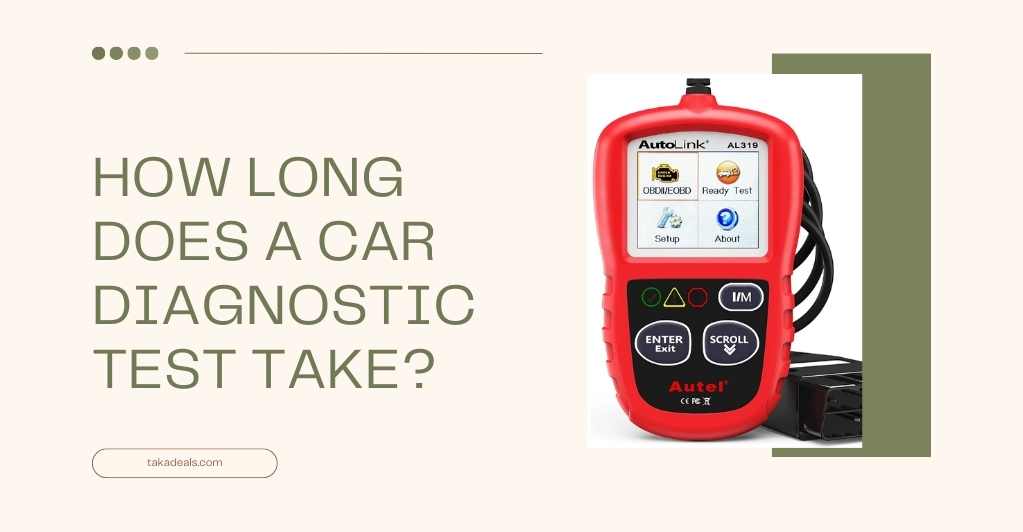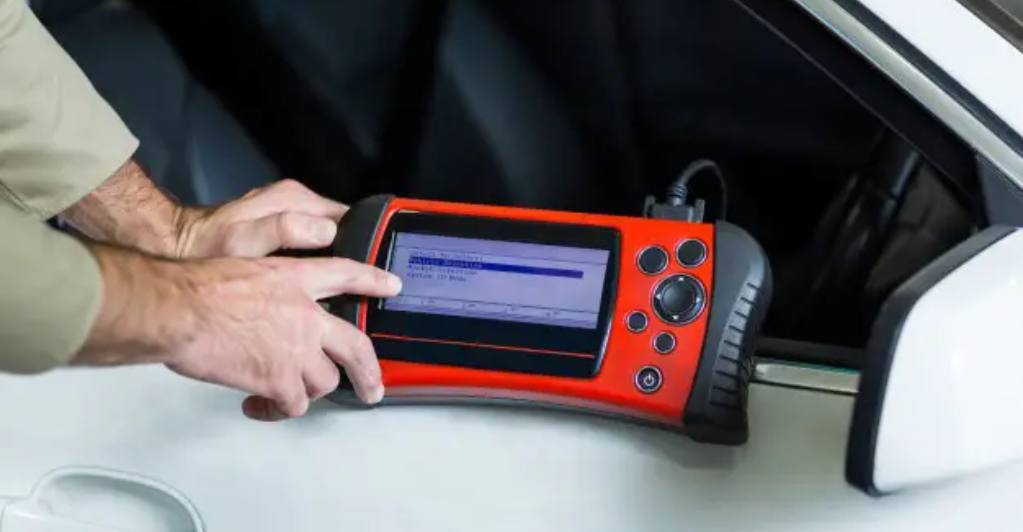
How Long Does A Car Diagnostic Test Take?
How Long Does A Car Diagnostic Test Take: Over the past few years, technology has advanced significantly. Advanced technology has resulted in computerization of the vehicles. This simply means that the cars and other vehicles are created and optimized in such a way that they provide exceptional performance and a smooth driving experience.
Also, the advancement has led to people that can thoroughly go through the diagnostic tests of their cars. In the end, this will ensure seamless performance and also remove any potential risk.
You will not deny that the diagnostic test of a car is so important. Nevertheless, when car owners talk about that, they are stuck with two questions. The maximum time required for the process and the cost of the same are two major concerns that people are worried about. In the following comprehensive guide, you will get to know everything about how Long Does A Car Diagnostic Test Take. Let us dive in to know more:
What Is The Meaning Of A Car Diagnostic Test?
A Car Diagnostic Test is a process used to identify and analyze issues or problems within a vehicle’s various systems and components. It involves connecting a diagnostic tool or scanner to the vehicle’s On-Board Diagnostics which is also called an OBD port, that is typically located under the dashboard near the driver’s seat. This tool communicates with the vehicle’s computer systems to retrieve information about its proper or improper functionality, performance, or any potential faults.
During a car diagnostic test, the diagnostic tool reads and interprets data from the vehicle’s sensors, control modules, and other components. This data can include information about the engine, transmission, emissions, fuel system, ignition system, brakes, and more. After that, the diagnostic tool produces error codes or diagnostic trouble codes (DTCs), which shed light on certain problems or malfunctions.
Mechanics and technicians use these codes to identify the root cause of problems and determine what repairs or maintenance tasks are necessary. The codes give them a starting point for troubleshooting and narrowing down the issues, which can save time and help ensure accurate repairs.
Also Read: Hiya vs First Day Vitamins
Why Are Car Diagnostic Tests Important?

Car diagnostic tests are important for several reasons and here are some of them mentioned:
- Identifying Issues: Diagnostic tests help pinpoint the exact problem areas in a vehicle’s systems, making it easier for mechanics to address issues effectively.
- Efficiency: Diagnostic tests provide quick and accurate information, allowing mechanics to spend less time on trial-and-error troubleshooting.
- Complex Systems: Modern vehicles have numerous interconnected electronic systems that can be difficult to diagnose without the help of specialized tools.
- Emissions Testing: Diagnostic tests can help ensure that a vehicle complies with emissions regulations by detecting problems that might impact emissions control systems.
- Preventive Maintenance: Diagnostic tests can identify potential issues before they become major problems, helping car owners avoid costly repairs down the line.
It is important to know that while some diagnostic tests can be performed using basic OBD scanners, more advanced tests might require specialized equipment and knowledge. If you encounter warning lights on your vehicle’s dashboard or suspect any issues, it will be a good idea to consult a professional mechanic or technician to perform a thorough diagnostic test and address any problems effectively.
How Long Does An Automobile Need To Be Diagnosed?
The duration of a car diagnostic test can vary depending on the complexity of the issue, the type of diagnostic tool being used, the experience of the technician, and the specific systems being tested. Generally, a basic diagnostic test might take anywhere from a few minutes to an hour, while more complex issues might require longer periods, potentially extending to a few hours.
Here is a concise procedure for a car diagnostic test that will let you know the complexity of the procedures.
- Initial Inspection: First, the mechanic or technician visually examines the car for any telltale indicators of a problem, including fluid leaks, noticeable damage, or odd noises.
- Connecting Diagnostic Tool: They locate the OBD port that is usually beneath the dashboard near the steering column and connect the diagnostic tool to it.
- Reading Error Codes: The diagnostic tool interacts with the onboard computer systems of the vehicle to retrieve error codes or diagnostic trouble codes (DTCs) that reveal details about possible problems.
- Interpreting Codes: The technician interprets the codes to identify the specific systems or components that are experiencing problems. These codes provide a place to look for additional information.
- Data Analysis: The diagnostic tool can provide real-time data about various sensors and systems while the vehicle is running. The technician analyses this data to understand how different components are functioning.
- Manual Checks: Depending on the issues indicated by the codes and data, the technician might perform additional manual checks, such as inspecting wiring connections, vacuum lines, or fluid levels.
- Testing Components: In some cases, the technician might conduct specialized tests to verify the functioning of specific components, such as sensors, actuators, or solenoids.
- Problem Isolation: Through a process of elimination and further testing, the technician narrows down the root cause of the issues. This might involve resetting certain codes and observing if they reappear.
- Recommendations: When the diagnostic test is completed, the technician or the mechanic gives recommendations to the car owners. This will include any potential problems and repairs that are needed.
- Discussion with Vehicle Owner: The technician discusses their findings and recommendations with the vehicle owner, providing explanations and estimates for the required work.
- Decision and Repair: It is completely up to the owner of the vehicle whether they want the mechanic to do the repairs as recommended or not. If they approve, the technician begins the repair process.
- Re-testing: After repairs are completed, the technician might conduct another diagnostic test to ensure that the issues have been resolved and no new problems have arisen. This process is completely optional and will absolutely depend on the technician if he finds the need for another diagnostic test.
Cost Of Car Diagnostic Test
The cost of a Car Diagnostic Test is going to depend completely on the type and complexity of the test that you are choosing. If you ask a technician or mechanic in general then they will suggest that the ideal cost of a Car Diagnostic Test will be around $40 to $200. This is so because there are multiple tools used in various tests and if there is any repair needed then you will have to pay extra for repairs and potential damage clearance.
Also Read: How To Toast Bread In The Oven
FAQs: How Long Does A Car Diagnostic Test Take?
Q1. What Are Diagnostic Trouble Codes?
Ans. The codes that are triggered to tell that a function or system is defective or working improperly are termed Diagnostic Trouble Codes. These codes are always present in the memory of various vehicles and can be restored whenever the diagnostic test is required. However, this will be done only by using specified software.
Q2. Can I Use My Own Car Code Reader?
Ans. There are many DIY code readers available but they are not as accurate as the actual ones. These may be considered small tools that do not provide any information about the actual origin of the issues. When you purchase a pricey then it will let you know the original issues as well as work as per the instruction of a skilled technician only. Also, it is important to know that some vehicles employ critical codes that cannot be decoded in any sophisticated way.
Q3. Can The Cost Of A Car Diagnostic Test Vary?
Ans. Yes, it can definitely vary as there is the use of various procedures, tools, and equipment. The technician also takes labor charges which makes it an expensive procedure. In addition, the complexity of the processes may have an impact on the price. It is also possible that there are damages or potential risks of damages which need to be eliminated. This will also have its own cost.
Final Takeaways – How Long Does A Car Diagnostic Test Take?
How Long Does A Car Diagnostic Test Take? Modern car maintenance includes diagnostic tests for vehicles as a crucial component. They give car owners and mechanics a thorough understanding of the condition and operation of a vehicle, enabling them to identify issues early and guarantee optimum performance, security, and longevity.
Potential problems with the engine, transmission, braking system, emissions, and other crucial components can be found through numerous diagnostic tests, enabling prompt repairs and a more enjoyable driving experience. Regular diagnostic testing needs to be viewed as a preventative step to stave off bigger, more expensive issues in the future.






